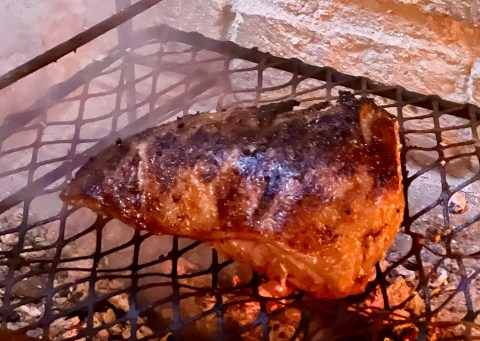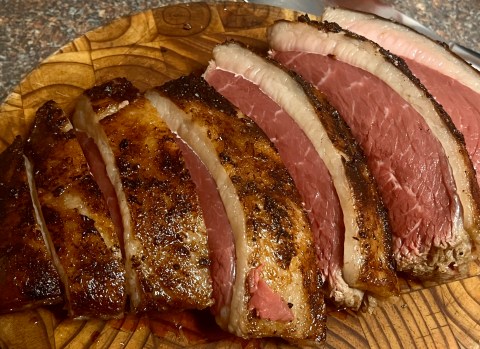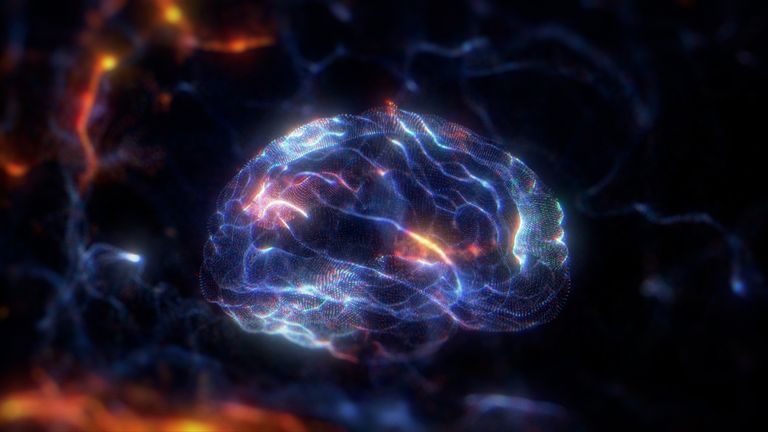The invasion of Ukraine — Putin’s final battle with reality
How did a war with Ukraine become possible at all? The answer is in the alternative political ‘reality’ constructed by Russia in the last few years with the aid of lies, manipulations and the creation of fakes. It was so poorly executed that it seems unbelievable that anyone amongst the decision-makers (including those who created it) actually believes in it. As it turns out, someone evidently does. His name is Vladimir Putin.
In its many years under Vladimir Putin, the Russian establishment has led a ruthless, militant battle against social reality. Political administrators (yes, these are administrators and not politicians, because no one elected them) have persecuted all forms of independence and pushed out activists, politicians and journalists from the public space if they have shown themselves to hold independent views.
Their positions were passed on to figureheads whose task was to feign action and create smokescreens. Officials in the presidential administration busied themselves with identifying, infiltrating and converting any organised parties, groups, and structures that showed any sign of opposition into manageable “cells.”
How the destruction of society leads to war
Everything contemporary was declared alien, foreign, hostile, extremist and even “terrorist”. Let’s remember the civic movement created by Alexei Navalny, which aimed for non-violent political struggle against the regime and was declared therefore, in essence, to be “criminal”.
As far as destruction goes, the successes of officialdom were impressive. Let’s not forget that such “successes” were achieved by direct assassinations, force, and the expulsion of people beyond our borders. Faceless officials, at different times working under the leadership of Kremlin political bosses — Vladislav Surkov, Vyacheslav Volodin, Sergey Kiriyenko — led the charge in close cooperation with intelligence services. The results of these activities are truly horrifying.
Let’s remember the imprisoned activists. Let’s remember those forced abroad and those who gave up public activity, having soberly assessed the risks associated with it. We shan’t forget the assassinated politicians, journalists and public figures, whoever might be behind their deaths.
Putin’s officials tried not only to control civic society, but sports results as well. The logic of fair play was blasted to smithereens: the leader, clearly, did not believe in it. Russian sportspeople had to be better than all others, at any cost. Thus, competitions were replaced by doping programmes, designed to paint the leader a picture of astonishing success. The Winter Olympics in 2014 became a project meant to guarantee victories. The orchestration of the Games was in the end exposed by a defector, the former head of the Moscow Anti-doping Laboratory, Grigory Rodchenkov. Thanks to him we have a detailed picture of this sordid affair.
Creation, even by criminal means, is harder than destruction, which is why Putin’s theatrical construction of fictional alternatives to organic society is an abject failure. Those who transformed us into “others” (or “aliens,” or “undesirables”) have never created anything of their own, on their own initiative, by their creative inspirations or through the callings of their hearts. They could not create their own social space for discussions, could not create space for robust politics, trustworthy analysis, reliable sociology, political science or a healthy opposition and press.
This alternative reality is a warped reflection of our current social discourse: we have clowns in the place of politicians, artificial creations in the place of civic organisations, propagandists in the place of journalists and analysts.
It was easy enough to live with it: one does not have to vote for clowns, read the words of fake analysts or listen to figureheads who are devoid of any independent thought. They are merely bad actors, reading someone else’s texts, tools of crude political gamesmanship. Everything was so transparent that the conviction arose that they would burst at their seams as soon as the coercive grip of the state weakened. The trigger for such weakening, I used to think, might be some fairly organic process — an economic crisis, a drop in a leader’s popularity, or a change of generations in power.
A crisis would wipe out artificial constructs: “politicians” and “journalists” (that’s right, in inverted commas) would simply disappear from the airwaves, since they, like automatons, work only when plugged into the state charger. Russian citizens would suddenly have freed themselves of all illusions and would have seen how the decorations fall apart. Let’s remember the ending of Alice’s Adventures in Wonderland: the King, the Queen, the knights and judges ended up being merely a deck of cards. Or the end of Vladimir Nabokov’s novel Invitation to a Beheading, “The propeller airstream picked up and spun dust, rags, painted sawdust, broken bits of gilded plaster, cardboard bricks…”
Except that today, missiles, explosives and bombs are bringing upon Ukrainians a very real death. The airstream from the propeller blowing over Ukrainian land is perfectly real, and the broken bits and bricks are real. Our lackadaisical attitude towards Putin’s alternative reality was a ubiquitous and tragic error, one of which I am also guilty. The sense of a virtual reality was deceptive. The decorations did not turn out to be gilded plaster, the stones did not turn out to be made of cardboard. Quite the opposite: the crude theatrical curtain, painted over by painters paid enough to buy food, has been drawn back, revealing death and suffering.
I recognise my own profound meagreness in my efforts to demolish the ornamentation when that was possible, before the war. I was convinced the fictions would fall under their own weight.
How your worldview can kill the world
To believe that life, honour, talent and recognition can be bought and sold is a mistake — a harmful view deserving of contempt. It is no innocent error. A man who convinced himself that everything could be bought and sold, that a society could be the subject of a military occupation in order to create in its place his own paid-for reality, has brought not only the country, but the whole world, to a catastrophe.
Not only did he fall for his fictional reality, but he has also made it the foundation for his actions in the real world. It is now clear that his plans for a brief military operation in a friendly country got bogged down in his own constructed fiction. He was evidently expecting that the use of force by a “genuine” — that is, “his” — country could bring about the immediate demise of the “not genuine” Ukrainian statehood.
He thought he was dealing with a piece of decor ordered by forces hostile to him — perhaps created by America or Europe, a fiction with its origin in methods like his own. He really seems to have believed that his manufactured “popularity” would turn out to be real support for his actions by Russian society. He thought they would believe in the threat of Ukrainian “fascists” and in his mission as a liberator. He must have surmised, likely having listened to his own toadies, that Russia is ready for war and for sanctions.
Putin had convinced himself that Ukrainian society is the same kind of theatre into which he — using murder and intimidation — has transformed Russia. He thought that Ukrainians — from privates in the frontlines to the top leadership so loathed by him — would crumble into a deck of cards and recognise his authority. The president of Ukraine is a former comedy actor, the mayor of Kyiv, a former boxer; who do they think they are? It seems he seriously believed he has psychological and moral superiority over today’s Ukraine and over the global democratic community. His flawed worldview prevented him from realising that his “superiority” was fabricated by his court jesters. His television and radio had only one producer and real viewer — himself. He poisoned himself with his own lies.
He enjoys no moral superiority over anyone. His only superiority was in his military might. But in order to make that superiority real, you require a clear mission, focus, and the justness of your cause. Only Ukraine and the Ukrainians now have such a mission, focus and justness. It is possible that right now Putin is facing a choice whether or not to launch the nuclear weapons at his disposal. This will bring more deaths and suffering. And change nothing of substance.
His war against reality should have been a personal matter. If you want to live in resentment and anger against the whole world — go for it. But he imposed himself on the Russian people using force, manipulation and lies. For many years, he assured his “popularity” by using fair means and foul. By force and intimidation he imposed himself on to Russian society and debased the identity of his own people who once fought side by side with the Ukrainians in a mutual, just war.
He poisoned not only himself but also Russia. He predetermined the contempt with which the whole world will see not only him but every one of us from Russia. For many years ahead we will not manage to convince the world that “we are not like that”, that “this is not us”. For many years — after Putin — it will be up to us to rebuild in Russia a civic system free of any political decor or fiction.
Russia has lost this war morally, simply by starting it. Irrespective of events on the battlefield, Russia has lost this war as a political, economic and social unit, as a member of the commonwealth of nations. There was once a time when the word “war” — without any qualifiers — commonly referred to the Great Patriotic one. Now, this word has a different meaning. This is the war he initiated, the one that made me and all Russians liable for the catastrophe created by him. DM
A number of independent media outlets in Russia have been closed by Russian authorities in recent days, particularly those critical of the Russian invasion of Ukraine. Meduza.io has announced that it is placing all its reportage relating to coverage of the Ukraine invasion into the public domain under a Creative Commons licence and making it available for republication. This is a translated version of an article that appeared on 1 March. Russian legislation permits certain organisations and persons to be declared “foreign agents”. The provisions of that legislation require every article published by such “foreign agents” to be prefaced by the following notification:
“This message (material) was created and (or) published by a foreign media performing the functions of a foreign agent and (or) a Russian juristic person performing the functions of a foreign agent.”
This article was translated by Sebastian Chatov, the founder and chief executive of Appanagium Capital. Chatov finished his primary and secondary schooling in Russia and is fluent in Russian. He is an independent observer of Russian affairs. The original article appeared on Meduza.io.
https://www.dailymaverick.co.za/opinionista/2022-03-04-the-invasion-of-ukraine-putins-final-battle-with-reality/












